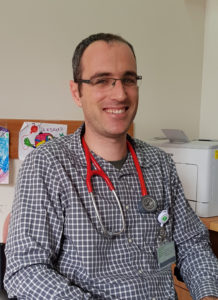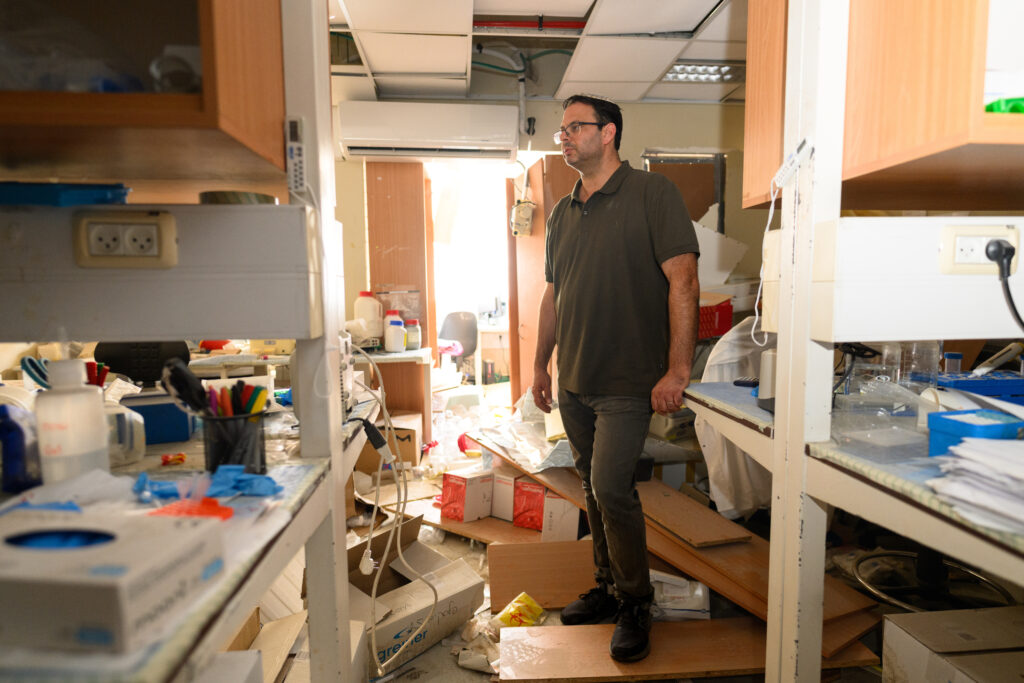
Mass Media Exposure Increases Demand for Vaccines
Mass Media Exposure Increases Demand for Vaccines
March 1, 2018
Medical Research, Press Releases
Mass media exposure can motivate people to get vaccinated, especially during disease outbreaks, according to researchers at Ben-Gurion University of the Negev (BGU) and Soroka University Medical Center.
After an isolated wild type 1 poliovirus was discovered in a routine sewage sample in the Southern region of Israel in April 2013, the Israel Ministry of Health initiated an extensive risk communication campaign that led to constant coverage of the outbreak in local and national newspapers, television and radio reports, news websites, and on social media.
According to a new study in the journal Vaccine, researchers monitored daily immunization rate reports during the detected outbreak and discovered a significant increase in both bivalent oral poliovirus vaccines (bOPV) and other vaccinations during the period there was constant media exposure.
During the three-month time period studied, August to October 2013, 138,799 oral polio vaccines were administered to children under 10 years-old in Israel. Three to five days after major news coverage, vaccinations increased 79 percent in the Jewish population and 71 percent among high socio-economic subgroups.
Constant media exposure also prompted up to a 35 percent increase in other more routine vaccinations within these subgroups, such as diphtheria-tetanus-pertussis-hemophilus influenza and rotavirus. Researchers also noted positive media sentiments led to an increase in polio vaccines while reports of negative sentiments had no noticeable effect.
“This is further evidence that media coverage can impact public response during a health crisis,” says Dr. Iftach Sagy, a researcher at the Soroka Clinical Research Center and a lecturer at the BGU Faculty of Health Sciences.
“It is important to release information quickly and be as transparent as possible to help contain public outbreaks and epidemics. If media outlets don’t have sufficient information about risks, they focus on more sensational stories instead, which could have a negative impact.”
For example, during the 2009-2010 H1N1 swine flu outbreak in Europe, when media attention declined after the epidemic reached its peak, vaccinations decreased which resulted in more deaths during the second wave, even though there were still sufficient quantities of vaccine available. Fortunately, the Israel Ministry of Health responded quickly and was able to successfully administer supplemental vaccinations during the silent polio outbreak without incurring any clinical infection cases.
“Infectious disease outbreak communications need to take into account the needs of different subgroups, build an equal partnership between government agents and the public, and engage in two-way communication to maintain trust,” says Dr. Sagy. “It is important to have all of these elements in place to contain the spread of potential epidemics.”
The team’s findings suggest that governmental agencies should develop communication strategies tailored to different ethnic and socio-economic communities to address inherent risks and properly engage groups that are often mistrustful of media.
In addition to Dr. Sagy, the study team included Dr. Victor Novack, a professor of medicine in the BGU FOHS and head of the Soroka Clinical Research Center, Prof. Dan Greenberg, chair of the BGU Department of Health Systems Management, and Dr. Michael Gdalevich of the Israel Ministry Southern District Health Office.
ABOUT AMERICANS FOR BEN-GURION UNIVERSITY
By supporting a world-class academic institution that not only nurtures the Negev, but also shares its expertise locally and globally, Americans for Ben-Gurion University engages a community of Americans who are committed to improving the world. David Ben-Gurion envisioned that Israel’s future would be forged in the Negev. The cutting-edge research carried out at Ben-Gurion University drives that vision by sustaining a desert Silicon Valley, with the “Stanford of the Negev” at its center. The Americans for Ben-Gurion University movement supports a 21st century unifying vision for Israel by rallying around BGU’s remarkable work and role as an apolitical beacon of light in the Negev desert.
About Ben-Gurion University of the Negev
Ben-Gurion University of the Negev embraces the endless potential we have as individuals and as a commonality to adapt and to thrive in changing environments. Inspired by our location in the desert, we aim to discover, to create, and to develop solutions to dynamic challenges, to pose questions that have yet to be asked, and to push beyond the boundaries of the commonly accepted and possible.
We are proud to be a central force for inclusion, diversity and innovation in Israel, and we strive to extend the Negev’s potential and our entrepreneurial spirit throughout the world. For example, the multi-disciplinary School for Sustainability and Climate Change at BGU leverages over 50 years of expertise on living and thriving in the desert into scalable solutions for people everywhere.
BGU at a glance:
20,000 students | 800 senior faculty | 3 campuses | 6 faculties: humanities & social sciences, health sciences, engineering sciences, natural sciences, business & management, and desert research.
For all press inquiries, please contact:
James Fattal, J Cubed Communications
516.289.1496




